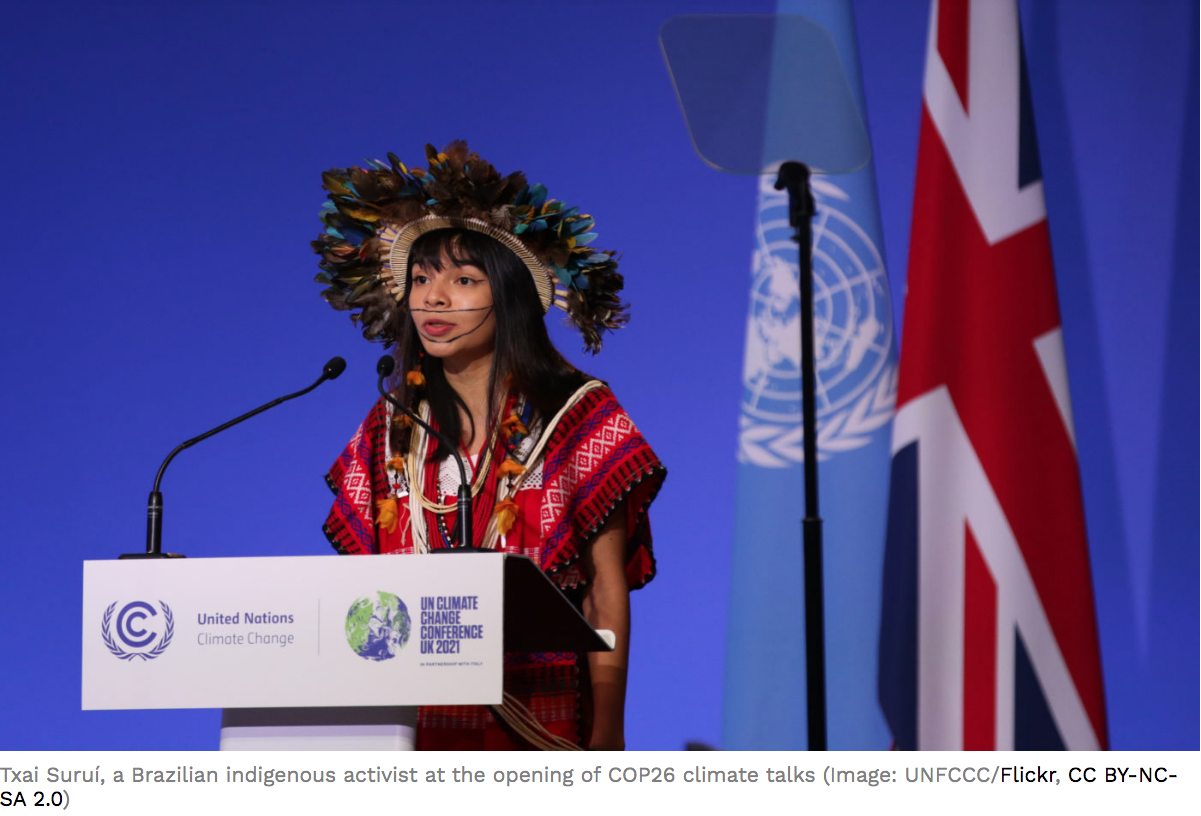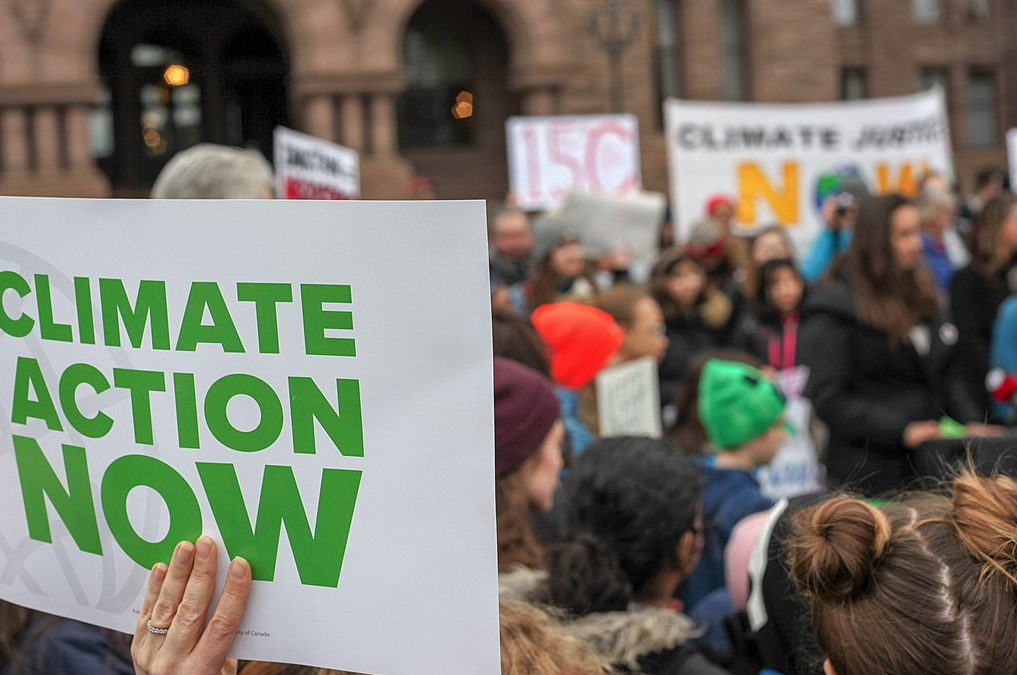It was hard to focus on anything else these last two weeks as the Climate Conference took place in my home city of Glasgow. Although the deal isn’t perfect, I have three reasons for hope. This week on Fresh Dialogues, I’m sharing those reasons and a recent conversation I had with Vivienne Nunis on the BBC World Service. Her reporting from Brazil also gives me hope and underlines our need for an action mindset on climate.
What’s an action mindset? On a personal level, an action mindset is the belief that your actions can change your future, that your abilities are not fixed, but can be improved by a bias to action. Your action can change your future and the future of the planet. The promises made in Glasgow must now be followed up by action. Dr. Martin Luther King Jr said it best:
“An idea without action is like a bow without an arrow,” Dr. Martin Luther King Jr.
Photo credit above: Jasmin Sessler
Listen to the Fresh Dialogues podcast this week:
.
Here are my three reasons for hope after Glasgow’s COP26:
- Renewal of international collaboration: The cooperation in Glasgow was in stark contrast to the nationalistic trends we’ve witnessed around the world in recent years. The unexpected joint statement by the U.S. and China gave me hope, as well as the final agreement which requires countries to come back next year with even more ambitious plans.
- Private sector driving change: Mark Carney’s announcement of a $130 Trillion commitment from financial institutions is significant. Enlisting the private sector to finance the transition to net zero is crucial, but it also needs to stop funding for fossil fuels. Regulation could accelerate that change by penalizing institutions for holding dirty fuel assets on their balance sheets.
- The deforestation agreement: This historic pact was signed by countries that account for about 85% of the world’s forests, including Brazil. The agreement aims to conserve and speed up restoration of forests and increase investment to promote sustainable forest management and support for indigenous communities. It adds about $19 billion in public and private funds, including large contributions from the Ford Foundation and foundations led by Jeff Bezos and Mike Bloomberg.

One powerful speech in Glasgow which caught my attention was that of Txai Surui, a 24-year-old indigenous climate activist from Brazil who accused global leaders of “closing their eyes” to climate change.
“The animals are disappearing, the rivers are dying… The Earth is speaking: she tells us we have no more time,” Surui says.
She urged leaders to think of people like her in “the front line of the climate emergency”, and she shared a moving story about a dear friend who has been murdered for protecting the forest. Sadly, her friend is one of thousands.
Making forests worth more alive than dead
The three largest rainforests in the world are located in the Amazon, Congo River basin and Southeast Asia. Together they absorb about a third of carbon dioxide emissions. In 2020, the world lost a staggering 100,000 square miles of forest — a swathe of land bigger than the United Kingdom. Is there a role for the private sector to step in where governments have failed? The key to stopping deforestation is making forests worth more alive than dead.
“We’re going to work to ensure markets recognize the true economic value of natural carbon sinks and motivate governments, landowners and stakeholders to prioritize conservation,” President Biden said in Glasgow.
The BBC’s Vivienne Nunis spoke to Robert Muggah of the Igarapi Institute about the fate of Brazil’s rainforest and the urgency of documenting the destruction and taking action to reverse current trends. Although land clearing, for mining and agriculture has increased under Brazil’s President Bolsonaro, private sector action offers a glimmer of hope.
Nunis’s interview with Nat Keohane of the nonprofit, Emergent was powerful. The organization acts as a middleman between corporations and the forest’s indigenous communities:
Here’s a transcript of the discussion, edited for length and clarity. (Starts @34:43 in the BBC podcast)
Nat Keohane: We need a model that invests in sustainable green growth. This could make Brazil (one of) the world’s first green economic superpowers… We need to decarbonize and protect the forest. One of the most important tools we have to try to shift course and get on a low carbon trajectory across the economy is to align the economic incentives that private companies face or that landowners in Brazil face. You need to make forest worth more alive than dead. And that means changing the incentives and that’s what the leaf model is trying to do. But we also need to change those incentives throughout the economy so that it is more profitable to go after low carbon technologies than to continue to use high carbon ones.”
Vivienne Nunis: Alison, what do you make of this idea of creating a kind of middleman? Somewhere that big corporates can channel their cash to try and cancel out what they’re doing in terms of carbon emissions? Do you think that can work?
Alison van Diggelen: I love the idea of this market led solution. It makes a lot of sense, but I just can’t help feeling it’s a drop in the ocean. The Emergent program needs to be scaled up and fast. I love the idea of making Brazil a green economic superpower, but I think the answer might be more private sector and government programs to help local people work the land sustainably. A change in government next year in Brazil will help that. The sooner we can get Bolsonaro out of power, the better. Someone that’s more sympathetic to the environment and appreciative of the role that the rainforest plays in the global ecology and economy would help. Also, I think public-private and nonprofit partnerships like the one Google and the Igarapi Institute forged to map Brazilian deforestation will help. Maps that document evidence of illegal deforestation will help provide data points and help bolster the demand for action to protect the rainforest.
Continue listening to the BBC podcast (where we discuss why Tesla reached a Trillion dollar valuation and what can be done about the explosion of plastic bottles)
One final note: I was delighted to see my alma mater, Wolfson College in Cambridge organized its own COP26 conference and addressed the need for urgent adaptation and mitigation in their latest Wolfson Review.
.
“People must feel that the natural world is important and valuable and beautiful and wonderful,” David Attenborough




